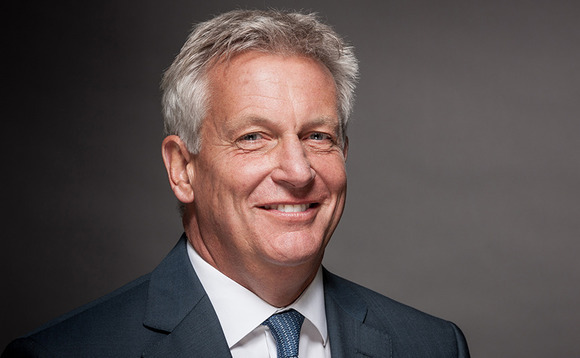
Q&A: Rutland Partners' Nick Morrill

Rutland Partners managing partner Nick Morrill discusses how to thrive amid economic uncertainty and the current challenges of the UK's consumer sector.
Kenny Wastell: How do you view the UK private equity market currently, given the high entry multiples and wider macroeconomic uncertainty?
Nick Morrill: It is a two-speed market at the moment. You have some extremely high prices being paid for growing businesses, yet there is a lot of real distress around. We do not invest in businesses in extreme distress where cashflow is under pressure. There is a lot of value erosion in those situations, which is unhelpful. We like businesses that are challenged but where you can improve performance by identifying changes or areas that can be improved through people or structural change and financial investment. There have also been an increasing number of carve-out opportunities. That indicates pressure is building in the economy and you will see people shedding non-core assets. There will be some interesting opportunities in the coming months as markets continue to struggle.
KW: To what extent is now a good time for sector-agnostic investors to be moving away from the consumer space into other area?
NM: It is less of an issue for a special situations investor such as ourselves, because we are not focused exclusively on growth buyouts and are not closely associated with pure consumer businesses. We have made only a select number of consumer facing investments over recent years, as we like to look for differentiated assets in good sectors. That is because we want to be confident that we are in control of our own destiny through projects and people, and that is more difficult in the volatile consumer-facing segment. But we look at every deal on its own merit and at some point there will be opportunities to buy things that are compromised by the current market conditions.
That said, the challenges in that space are not over yet, with multiple retailers trying to do CVAs – and there is a limit to how much retail landlords are going to tolerate that. E-commerce will continue to grow, but if people are going to succeed in, for example, omnichannel retail, they are probably going to need both physical and digital assets. The fact Amazon is looking to invest in physical retailers is indicative of that.
KW: Maplin's entry into administration was obviously a blow. What were the main challenges the business faced?
NM: The thesis for Maplin was to rebuild the management team and harness the culture of technical in-store expertise into a modern retail environment. The existing store portfolio was fit for purpose and profitable, so it was ideally positioned for development into a multichannel retailer. It had a small working capital facility, no long-term debt on its balance sheet, and we invested heavily out of the free cashflow of the business into upgrading the digital proposition to enable real-time cross-trading between the channels.
We carried some one-off costs while we implemented the plan, which were due to unwind over time. That plan was working well until June 2016 and the post-Brexit-vote devaluation of sterling. We were sourcing in excess of £100m of technology products from the Far East and our bandwidth to manoeuvre was limited because we were committed to rolling out the rest of our plan in 2017. Nevertheless, we were confident of getting through it and that, with surplus costs removed, the natural profitability and the natural trading cycle would restore themselves. But external factors led to one of the worst retail markets in 25 years at the back end of 2017.
KW: Pizza Hut on the other hand was a successful investment for Rutland. What was the key to that success?
NM: The casual dining space was performing particularly strongly when we acquired Pizza Hut, and yet the business was in decline. The question was how to reposition what was a historically successful company to return to growth in a more competitive environment. The building blocks were its loyal customer base, long-term brand and national estate in what was then a resilient market. We reinvigorated the interior fit-out and the menu, and made it more welcoming to millennials. We were already well into our three-year investment plan before the wider casual dining downturn. The business was therefore able to focus on sustaining that performance, rather than being at the stage where we were digging things up and starting over. We made a strong return on our investment by a good combination of projects, people and operational improvement.
Latest News
Stonehage Fleming raises USD 130m for largest fund to date, eyes 2024 programme
Sponsor acquired the public software group in July 2017 via the same-year vintage Partners Group Global Value 2017
Stonehage Fleming raises USD 130m for largest fund to date, eyes 2024 programme
Czech Republic-headquartered family office is targeting DACH and CEE region deals
Stonehage Fleming raises USD 130m for largest fund to date, eyes 2024 programme
Ex-Rocket Internet leader Bettina Curtze joins Swiss VC firm as partner and CFO
Stonehage Fleming raises USD 130m for largest fund to date, eyes 2024 programme
Estonia-registered VC could bolster LP base with fresh capital from funds-of-funds or pension funds









